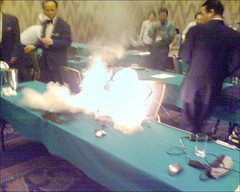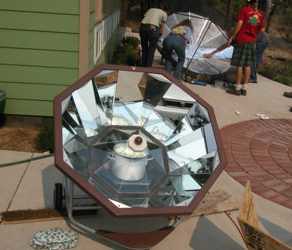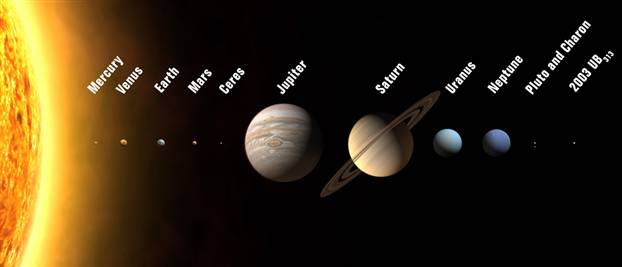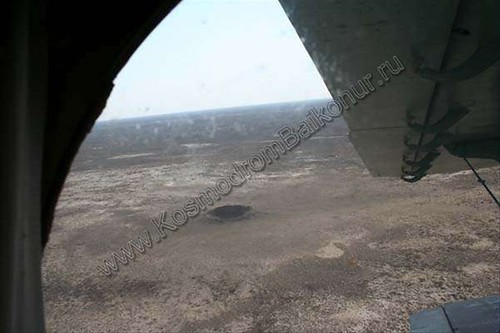 Loyal readers will recall our assiduous reporting earlier this summer on the explosion of a Dell laptop computer at a business conference in Japan.
Loyal readers will recall our assiduous reporting earlier this summer on the explosion of a Dell laptop computer at a business conference in Japan.
Now, it is evident, our remarkable editorial instinct has once again been proven correct, forcing the Washington Post, New York Times, USA Today and the AP into a desperate scramble to catch up to the new and vaunted journalism embodied by Really Rocket Science.
(When you read breathless news stories about how blogs are changing the media, they are, of course, referring to us.)
Never the sort to gloat, our hearts brim with pity as we think of the strained and perspiring editors of the Gray Lady and the nation’s wire services, clumsily stabbing their porcine fingers at their keyboards, trying to figure out this Google thing in a vain attempt to stay apace with the very edge of the new media vanguard, to break the news that we have invariably already broken — ney, smashed to pieces, exposed for the world to see and understand, then meticulously reconstucted by the nimble prose and dazzling insights of the writers of Really Rocket Science, who selflessly offer their beacon of hope and reason in a world too frequently perceived as chaotic and incomprehensible by journalists of a lesser caliber.
We do it because we care. We do it because we believing that exploring the vast interiors of ignorance is our small and humble way of contributing to a more civilized world. We are not journalists, nor mere bloggers. We are cartographers of the human spirit, and though others follow to fill in the details of roads and bridges and recalled laptop batteries and so on and so forth, we remain at the front, always, bringing you the news even before the masses have grasped it as news — outlining, as it were, the shapes of new continents that lie at the edge of this vast informational sea known as the Internet.
Land ho! we cry, through the lonesome gale, as the rest of the crew sleeps dreaming of their childhood cribs below the deck.
We will persist. And we will continue to peer out into the darkness, to alert you of the shape of things to come. To find, as is our burden and fate, safe passage through the ongoing storm.
Send us your tips to [email protected].

 I can’t say I was disappointed that the grill was gone. There was a certain satisfaction knowing that whoever had taken the thing had some arduous scrubbing ahead of them if they wanted to remove several years’ worth of crispy cheese and hamburger fragments that had ossified onto the grill. Losing the grill to theft, I reasoned, had at least spared me from that long-avoided chore.
I can’t say I was disappointed that the grill was gone. There was a certain satisfaction knowing that whoever had taken the thing had some arduous scrubbing ahead of them if they wanted to remove several years’ worth of crispy cheese and hamburger fragments that had ossified onto the grill. Losing the grill to theft, I reasoned, had at least spared me from that long-avoided chore. Multichanel News
Multichanel News  This week, the yearly battle between American space warriors is
This week, the yearly battle between American space warriors is 

 We found
We found  Loyal readers will recall
Loyal readers will recall